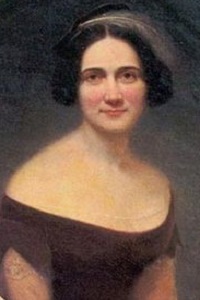
Mary Chesnut
Mary Chesnut (March 31, 1823—November 22, 1886) kept a comprehensive personal diary throughout the entirety of the Civil War. She revised it for publication from 1881 through 1884 but the book was not published until 1905, 19 years after her death. The book was rediscovered and republished by historian C. Vann Woodward whose annotated edition, Mary Chesnut’s Civil War (1981) won the Pulitzer Prize for History in 1982. Mary Chesnut’s diary is even more remarkable than its publication history, however. She was a well-educated woman who described the Civil War from within her upper-class circles of Southern planter society. Present in Charleston for the firing on Fort Sumter and in Montgomery for the establishment of the new Confederate government, Mary Chesnut was a superb observer and commentator. Literary critics have called her diary “a work of art” and the most important work by a Confederate author. Mary was married to a lawyer who served as a United States senator and Confederate officer, and very pro-slavery. Mary was a secret abolitionist who thought very poorly of slavery. Her wit, sophisticated insight and first-hand observations make her diary a compelling read in any age. She also wrote a translation of French poetry, essays, and three novels that she never published.






